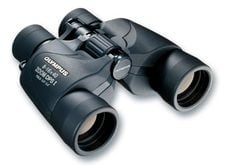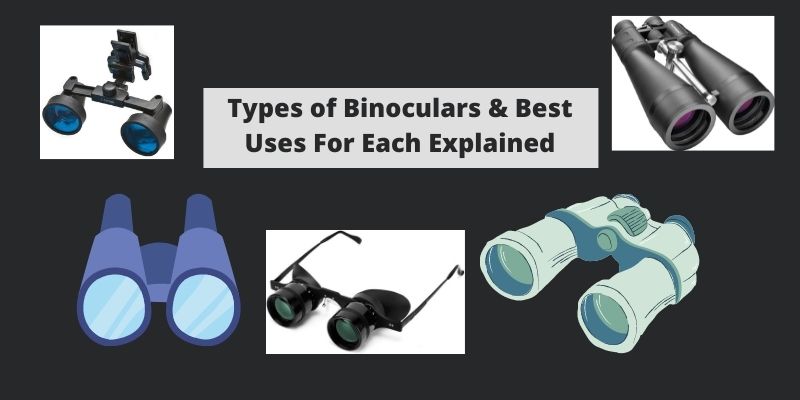A Total Overview to Recognizing Binoculars Zoom and Clarity
A Total Overview to Recognizing Binoculars Zoom and Clarity
Blog Article
The Value of Binoculars in Education and Scientific Research Study: Just How These Optical Instruments Add To Discovering and Exploration
The assimilation of binoculars into instructional settings and clinical research study is frequently ignored, yet their contribution to boosting empirical skills is considerable. In disciplines varying from ecological science to astronomy, field glasses offer as crucial tools that promote query and crucial reasoning.
Enhancing Observational Abilities
In academic and research setups, using binoculars dramatically boosts empirical abilities among pupils and experts alike. These optical tools help with a deeper understanding of distant subjects, enabling individuals to observe information that would certainly or else continue to be unseen. By utilizing field glasses, learners can take a look at wild animals, huge sensations, and geological developments, fostering a more profound connection to the subject.
Binoculars work as vital tools in field studies, encouraging pupils to engage proactively with their environment. Via improved observation, they can gather information more successfully, leading to enhanced analytical abilities. This hands-on experience permits the growth of crucial thinking, as pupils need to interpret what they see and relate it to academic expertise.

Bridging Theory and Practice
Empirical skills established through the use of binoculars normally cause an extra extensive assimilation of theoretical understanding with useful application. By participating in direct observation, students can change abstract principles right into tangible experiences. This harmony promotes a much deeper understanding of clinical concepts as students connect theoretical structures with real-world sensations.
For instance, when studying avian biology, students can use their knowledge of bird makeup and habits with the lens of field glasses, observing traits such as plumage variation, feeding routines, and migratory patterns. This straight interaction not just strengthens theoretical concepts but likewise grows essential thinking and analytical skills.
Additionally, making use of field glasses motivates learners to create hypotheses based upon their monitorings, thereby enhancing their clinical inquiry skills. They can actively check these hypotheses in the area, bring about a much more experiential discovering atmosphere that advertises curiosity and expedition.
Fundamentally, field glasses act as a vital tool in connecting the void in between class understanding and fieldwork - Binoculars. They equip pupils to become active individuals in their education and learning, motivating an all natural method to understanding the environment and its intricacies. Thus, the integration of concept and practice is important for fostering notified and engaged students
Applications in Environmental Science
Utilizing field glasses in ecological science boosts the capability to observe and evaluate ecological communities with higher accuracy. These optical tools are crucial for carrying out field research studies, making it possible for researchers to check wildlife populaces, evaluate plant health, and assess habitat conditions without disturbing the native environment. Field glasses promote the recognition of varieties at different distances, enabling scientists to gather important data on biodiversity and habits.
In ecological research study, binoculars are essential devices for ornithologists examining bird behavior and movement patterns. They allow researchers to videotape monitorings over extended periods, contributing to valuable longitudinal researches click here now - Binoculars. Additionally, field glasses play an important role in environment analyses, as they enable the in-depth observation of plant communities and their interactions within ecosystems
Environmental educators also gain from binoculars, as these instruments enhance experiential learning opportunities. Trainees can involve straight with their surroundings, fostering a much deeper recognition for ecological systems. By incorporating field glasses into instructional programs, teachers can motivate the future generation of environmental scientists.
Role in Astronomy Education And Learning
The usage of binoculars in astronomy education and learning offers an available portal for students and lovers to explore celestial phenomena (Binoculars). Unlike big telescopes, binoculars are mobile, straightforward, and reasonably economical, making them an ideal initial device for observing the evening sky. Students can quickly involve with the cosmos, fostering a hands-on understanding experience that boosts their understanding of huge principles
Binoculars allow customers to observe a selection of holy objects, consisting of the Moon, planets, and celebrity collections. This access encourages exploration and observation, vital parts of scientific questions. Pupils can establish important abilities such as data collection, monitoring methods, and also fundamental astrometry. Notably, binoculars function as a bridge to much more complicated astronomical tools, providing foundational experiences that can stimulate much deeper rate of interest in the field.
In instructional settings, led binocular sessions can promote team partnership and conversation, enhancing the discovering experience. The common experience of observing heavenly bodies can grow a sense of area amongst learners. Generally, field glasses play a critical duty in debunking astronomy, making it friendly and interesting for individuals in all levels of education.

Motivating Interest and Query
Field glasses not only assist in the observation of celestial sensations however likewise fire up a sense of curiosity and questions among pupils. By offering a better take a look at far-off things, field glasses urge learners to ask inquiries and check out the environment around them. This device changes easy knowing into an active, interesting experience, cultivating a deeper understanding of clinical concepts.
When trainees utilize field glasses to observe wildlife, landscapes, or astronomical things, they create empirical abilities that are critical for scientific inquiry. The act of concentrating on specific details motivates them to imp source create theories, conduct examinations, and reason based upon their observations. This process not just improves their vital assuming capabilities however likewise nurtures a long-lasting passion for expedition.
Moreover, binoculars can link the void between theoretical expertise and real-world application. Inevitably, the use of field glasses get more in educational settings serves as a stimulant for inquisitiveness, equipping trainees to pursue understanding with excitement and fostering a feeling of wonder about the world around them.
Final Thought
In recap, field glasses work as important devices in education and clinical study, significantly boosting observational skills while linking the gap in between theoretical understanding and sensible application. Their diverse applications in fields such as environmental scientific research and astronomy highlight their value in fostering inquisitiveness and questions among pupils. By promoting thorough assessments of far-off topics, field glasses not only influence the following generation of researchers however likewise grow an extensive recognition for expedition and the scientific technique.
Report this page